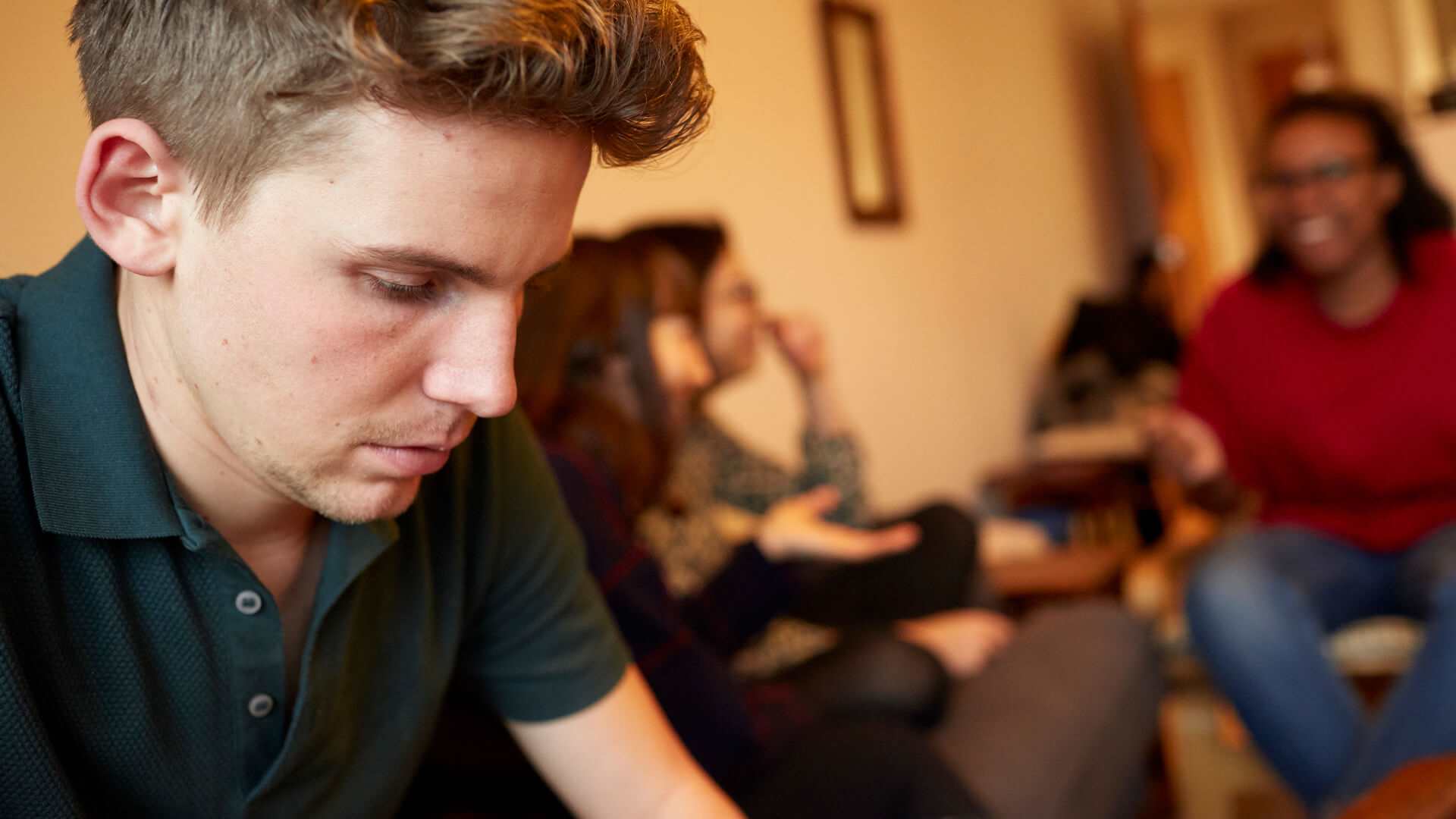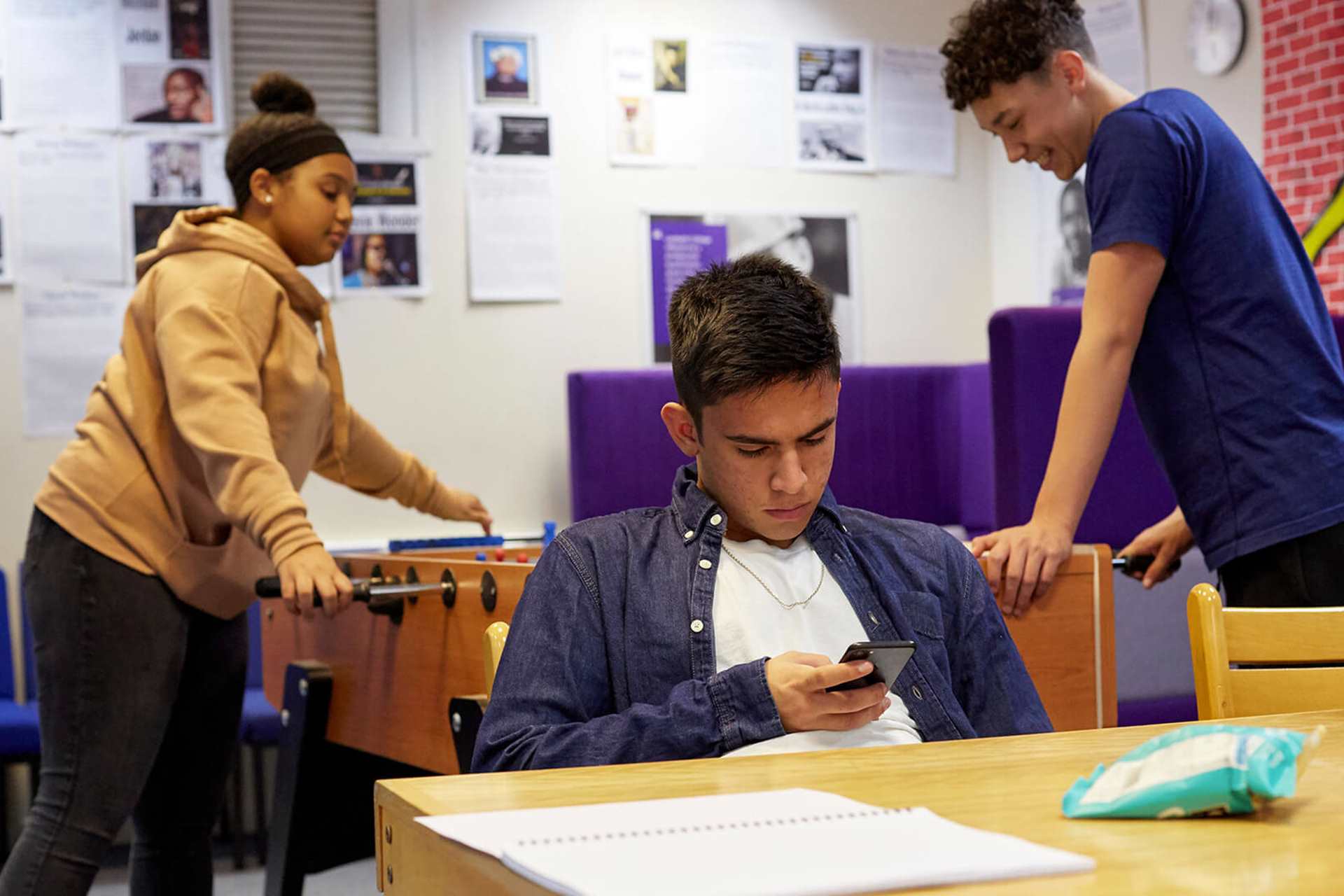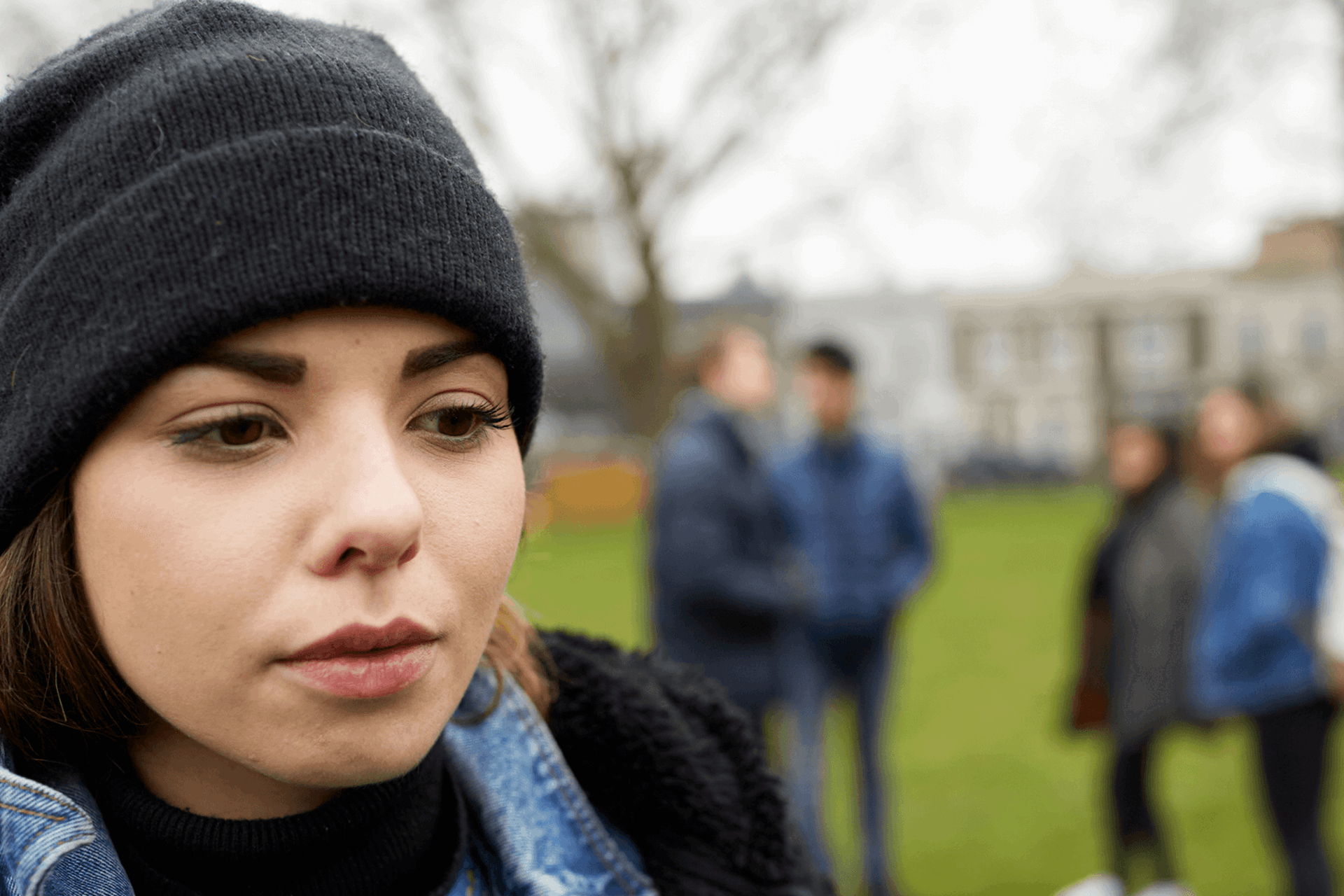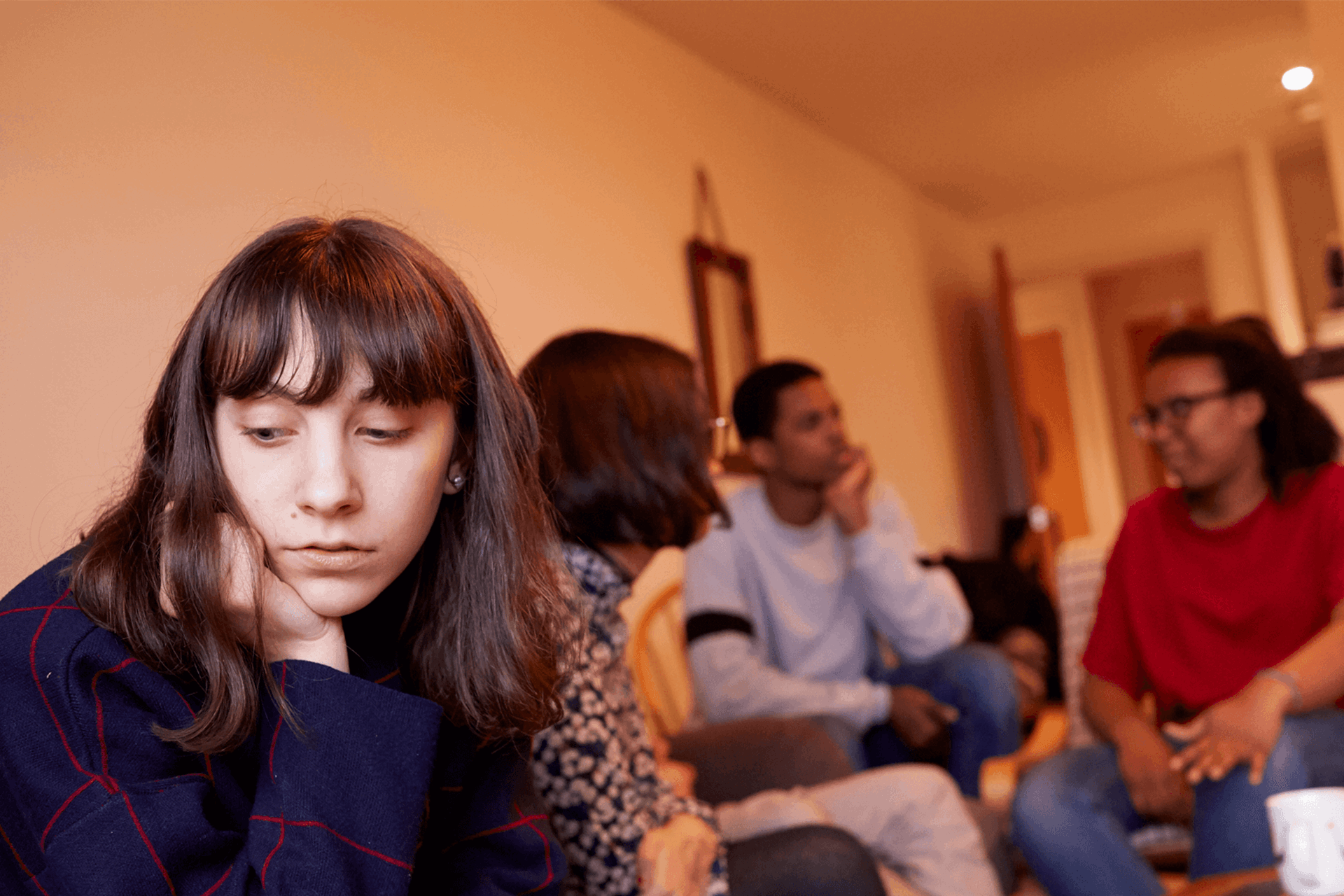Topics mentioned: anxiety, looking after yourself at university, self-esteem
About: Sophie shares how social anxiety and imposter syndrome affected her during her time at university and what it's taught her.
My heart hammered in my chest and my palms were so sweaty that I felt like I had just run a mile. My first day at university was nerve-wracking and I had even begun to question why I had thought it was a good idea to attend.
You see, throughout my studies I had always encountered the same response to crowded classrooms, and the unbearable stares from my fellow students as I entered the room. I was yet to be diagnosed with social anxiety, but I had always preferred to keep my head down and to work unnoticed.
There was always this fear at the very forefront of my mind, that every time I entered a room, spoke or contributed, I was being negatively judged on how I looked, sounded, or - when my nerves really got the better of me - even on how I might have smelled.
There was always this fear at the very forefront of my mind, that every time I entered a room, spoke or contributed, I was being negatively judged.
The impact of my school experience
Children and teenagers can be cruel and so judgemental, which deeply affected my high school experience. Some of the thoughts that would cross my mind were often confirmed when a fellow classmate would mock my appearance because I “looked like a boy,” and my curly, frizzy hair looked “unbrushed.” I was insecure about my appearance – I still am - and it felt like my fellow pupils could tell.
Don’t get me wrong, my high school experience wasn’t a complete disaster, especially in the later years. But it affected my ability to socialise in college and then university.
The university I chose to attend was local; in fact it was a building that towered over my former college campus. I preferred to stay local, not only because it was easier, but because my anxiety got the better of me and I worried about how I would cope in a strange city on my own. But between you and me, a part of me wishes that I had encountered the “full uni experience.”
I preferred to stay local, not only because it was easier, but because my anxiety got the better of me and I worried about how I would cope in a strange city on my own.
Imposter syndrome at university
I was quiet throughout my years of study. At the very beginning of my journey into higher education, I would hide in a separate college block every morning before entering the university centre. I was nervous every day and thoughts would swirl in my head that told me I wasn’t clever enough to be doing a university course, and that if I didn’t do as well as my fellow students, they would all think I’m stupid – it was classic imposter syndrome.
But in the end, those expectations and negative automatic thoughts that tell you that you are unworthy are detached from reality. The reality was simple: I was good enough to be there. From my very first year, my essays and coursework were marked at a percentage that translated to a string of steady B’s, and I even achieved a few A’s during my last, third year. The reality was that some of my fellow students were a good 20 years older than me or so, which created a calmer and less hostile environment than what I was used to at school. The reality was that we were all there to learn, we had a common goal, and the thought of being negatively judged based on my appearance or quiet voice was just my own mind declaring war on me.
Those expectations and negative automatic thoughts that tell you that you are unworthy are detached from reality.
What I've learnt about dealing with social anxiety
Social anxiety can be horrible, but there are strategies that can help you cope. The trick is to take the negative thoughts it feeds you, turn them around, dissect them and ask yourself what evidence there is to support them, because the likelihood is that there isn’t any.
Social anxiety can be horrible, but there are strategies that can help you cope.
I graduated from university last year with an upper second-class degree, and the only thing I would change is that I wish I hadn’t spent the years worrying about what other people thought about me. It’s a hard thing to tackle, you can’t just flick the switch off and never worry about people again, but don’t let it take away or consume your uni experience. It is the enemy, not your fellow classmates.
More information and advice
We have tips and advice to help you find the support you need. Take a look at our guides.
Where to get help
However you're feeling, there are people who can help you if you are struggling. Here are some services that can support you.
-
Student Space
Student Space is run by Student Minds.
Provides information and advice for students on looking after themselves at university.
Offers a directory to find out what support is available at your university.






